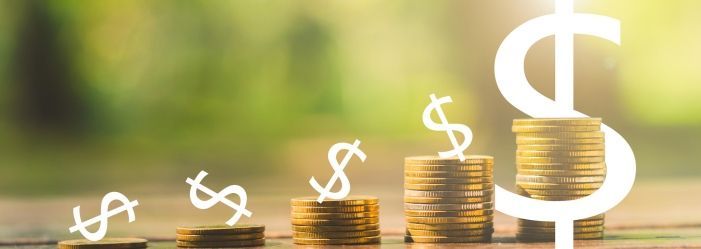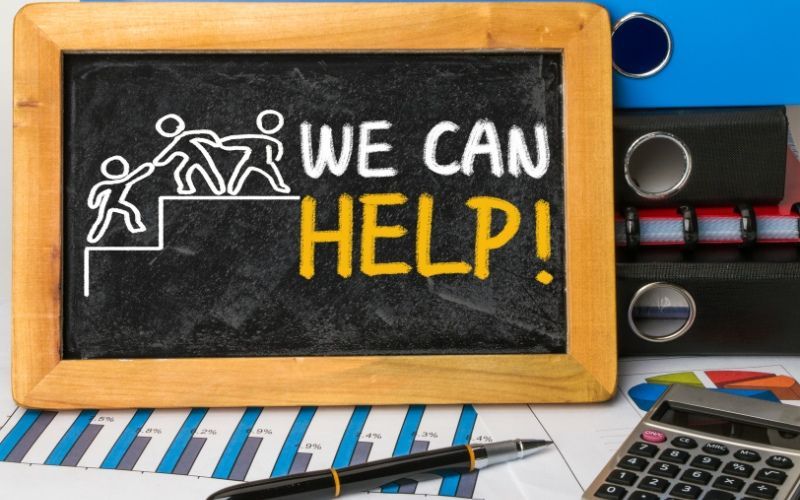Last Updated: March 25, 2024
Your Guide to Effective Debt Settlement Strategies

Disclaimer: We are not qualified legal or tax professionals and are not giving advice. Always speak with a qualified professional before making any legal or financial decisions.
Struggling to make a dent in your debt, despite your best efforts? You're not alone. Many find themselves in a financial maze, searching for a way out.
Whether it's the burden of credit cards, medical bills, or loans, the weight of debt can feel overwhelming. But there's hope. Exploring debt relief options can be the first step towards regaining your financial footing.
In this guide, we'll walk you through the process, from understanding what debt relief is to evaluating your options, ensuring you have the information you need to make a decision that's right for you.
Want to skip the article and speak directly to a debt specialist? Click here for a free consultation.
What is Debt Settlement?
Debt settlement, also known as debt relief or debt adjustment, is the process of negotiating with creditors and settling debts for less than the full amount owed. A debt settlement company works as a middleman between you and creditors to try to reduce the balances you owe.
Pros and Cons of Debt Settlement
Debt settlement can help resolve debts for less than you owe, but there are some downsides.
Pros of Debt Settlement:
- Can settle the debt for less than you owe, sometimes up to 50% less
- Avoid bankruptcy
- Stop debt collector calls
Cons of Debt Settlement:
- Fees can be 15-25% of the amount settled
- Can damage your credit score, often significantly
- No guarantee debt will be settled
- Forgiven debt may be taxable
Debt settlement can offer numerous advantages, such as the potential to transform your financial situation by reducing the total debt owed.
Avoiding Debt Settlement Scams
Unfortunately, many predatory companies falsely advertise debt settlement services. Be very cautious when evaluating debt settlement companies.
Here are some tips to avoid scams:
- Don't believe guaranteed claims of debt elimination. No company can guarantee all your debt will be settled - it depends on creditors agreeing to settle.
- Never pay any fees until after a successful debt settlement. Reputable companies will not ask for upfront fees.
- Make sure the company explains all the risks involved - like impacts to your credit score and potential for lawsuits or continued collections.
- Do not stop communicating with creditors, even if the company advises you to. This can make the situation much worse.
- Research the company's BBB rating and license. Make sure they are accredited and licensed in your state.
- Read online reviews from independent consumer protection sites to view past complaints.
- Avoid companies that refuse to provide a contract outlining services, fees, and your rights.
- Do not fall for claims that debt can be made to "magically disappear." Debt settlement takes years of negotiations.
- Talk to a nonprofit credit counseling agency to understand all your options before settling on debt settlement.
Protect yourself by being an informed consumer. Take time to research any company thoroughly before agreeing to anything.
DIY Debt Settlement
Attempting debt settlement on your own, without using a company, is an option - but it requires research and preparation.
Here are some tips:
- Learn negotiation tactics and your rights under consumer protection laws like the FDCPA. This will help you negotiate effectively.
- Calculate affordable lump sum settlement offers you can make to each creditor. Typically 35-50% of the balance works best.
- Contact creditors directly and explain your financial hardship. Be prepared to discuss a settlement offer.
- Get any agreement to settle the debt for less than you owe in writing before sending payment.
- Be persistent and diligent in following up with creditors regularly. Negotiations take time.
- Keep detailed records of all settlement offers, counteroffers, conversations, and agreements.
- Consult a tax expert - forgiven debt may be considered taxable income by the IRS.
- Repairing credit damage from settlements will take diligent work over time.
- If you feel overwhelmed, seek guidance from a nonprofit credit counseling agency. They can advise you for free.
- If you are sued by a creditor, be sure to formally respond within the time limit to avoid default judgment.
The DIY approach to debt settlement gives you more control but requires more work. Weigh the pros and cons of using a company. Thorough preparation is key to success.
Comparing Debt Settlement to Other Options

Debt Consolidation
- Debt consolidation combines multiple debts into one overall payment, ideally at a lower interest rate. This can make repaying debt more manageable without reducing the total balance owed.
- Consolidation has less of an impact on your credit score compared to debt settlement. Your payment history will show as current if you make on-time payments on the consolidated debt.
- Options for consolidation include balance transfer credit cards, personal loans, and working with a nonprofit credit counseling agency.
Credit Counseling
- Nonprofit credit counseling provides guidance on managing and repaying debt through services like debt management plans.
- Counselors can negotiate lower interest rates, waived fees, and other concessions from creditors to help you save money.
- You must repay the full amounts owed but on terms structured to your budget. This avoids further credit damage.
- Credit counseling services are low-cost or free. You'll make one monthly payment to the agency handling disbursements.
Bankruptcy
- Filing for bankruptcy eliminates most unsecured debts entirely, providing more complete debt relief.
- The process is much faster than debt settlement, taking just 3-6 months versus 2-4 years. This can allow credit recovery to begin sooner.
- However, bankruptcy severely damages your credit initially. The bankruptcy stays on your credit report for 7-10 years.
- The pros and cons depend on your specific circumstances. Talk to a bankruptcy attorney to understand this option.
FAQs
Whether you choose to hire a company to assist you, or to do it yourself, finding a debt settlement option is important. Hopefully by facing your problems and looking for a reputable debt settlement company you will be able to take steps toward becoming financially stable again in the near future.
Conclusion
Simply ignoring your problems will not make them go away. You need to talk with companies that you owe money to and explain what has caused your financial difficulties.
Many companies will understand your newfound financial difficulties and work with you to find a solution. They may lower your payments or even allow you to put them on hold temporarily.
Companies recognize that the economy is placing a hardship on many people and that it may be impossible for you to make payments to them. They know that by working with you now on a debt settlement they have a better chance of recovering their money in the future.
In the event that the companies that you owe money to are not willing to negotiate with you, or you do not feel comfortable calling them yourself, then you may need to hire a professional debt settlement company to help you.
If you are struggling with overwhelming debt and want to explore your debt relief options, Pacific Debt Relief offers a
free consultation to assess your financial situation. Our debt specialists can provide objective guidance relevant information and support to help find the right debt relief solution.
*Disclaimer: Pacific Debt Relief explicitly states that it is not a credit repair organization, and its program does not aim to improve individuals' credit scores. The information provided here is intended solely for educational purposes, aiding consumers in making informed decisions regarding credit and debt matters. The content does not constitute legal or financial advice. Pacific Debt Relief strongly advises individuals to seek the counsel of qualified professionals before undertaking any legal or financial actions.
✔ Accredited by Better Business Bureau with BBB A+ rating (4.92 rating and 1,700+ reviews)
✔ 7.5 star rating by BestCompany.com (over 2300+ client reviews)
✔ 4.8 star rating by TrustPilot (over 2200+ verified consumer reviews)
✔ ConsumerAffairs.com Accredited (over 500+ verified reviews with an average rating of 5 stars)
✔ A Top 10 Rated Compan by TopTenReviews.com , ConsumersAdvocate.com and Top10debtconsolidation.com
✔ 4.6 star rating by Google (400+ client reviews)
✔ 100% rating by SuperMoney (8 client reviews)
Reduce Your Credit Card Debt By Up to Half

BBB Reviews | 4.9/5.0 Rating









 Do Not Sell My Personal Information
Do Not Sell My Personal Information